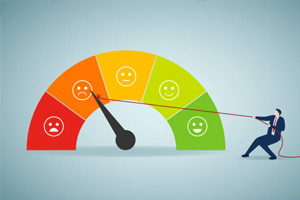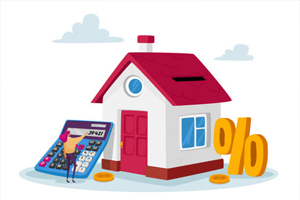How to consolidate debt with a personal loan?
Unlock financial freedom with our comprehensive guide on debt consolidation Learn how to boost your credit, dispel myths, and find inspiration in real success stories Explore the transformative power of strategic debt management now
Welcome to a comprehensive guide on debt consolidation, a financial strategy that has proven to be a game-changer for many individuals striving to regain control of their finances. In this guide, we will delve into the intricacies of debt consolidation, exploring its impact on credit scores, dispelling common myths, and sharing real-life success stories. Whether you're facing financial challenges or seeking a proactive approach to streamline your debts, this guide is designed to provide valuable insights and actionable information.
Debt consolidation is more than just a financial tool; it's a strategic approach to managing multiple debts efficiently. From understanding how debt consolidation influences credit scores to exploring the diverse experiences of individuals who have successfully navigated this journey, we aim to equip you with the knowledge needed to make informed decisions about your financial well-being.
We'll address common misconceptions surrounding debt consolidation, such as its impact on credit scores, eligibility criteria, and the belief that it's only for those in financial crisis. By debunking these myths, we aim to empower you with accurate information to make choices that align with your unique financial goals and circumstances.
Additionally, our guide includes real-life success stories that highlight the transformative power of debt consolidation. These stories illustrate how individuals have overcome various financial challenges, achieved debt-free status, and even realized homeownership through effective debt consolidation strategies.
Whether you're considering debt consolidation for the first time or looking to refine your understanding of its intricacies, this guide is a valuable resource. We encourage you to explore each section thoroughly, gaining insights into the factors to consider before consolidating debt, managing finances post-consolidation, and understanding the long-term impacts on credit scores.
At every step, our goal is to provide a comprehensive breakdown of the debt consolidation process, allowing you to make informed decisions that align with your financial aspirations. Let's embark on this journey together, exploring the world of debt consolidation and paving the way toward a more secure and empowered financial future.

Understanding Debt Consolidation with a Personal Loan
What is Debt Consolidation?
Explore the concept of debt consolidation and how it involves combining multiple debts into a single loan. Understand the potential benefits of simplifying your debt structure and managing repayments through a personal loan.
How Does Debt Consolidation with a Personal Loan Work?
Delve into the mechanics of debt consolidation using a personal loan. Learn how the loan amount covers existing debts, resulting in a streamlined repayment process with a fixed interest rate and a single monthly payment.
Types of Debts Suitable for Consolidation
Identify the types of debts that are suitable for consolidation with a personal loan. From credit card balances to medical bills, grasp which debts can be effectively managed through consolidation, offering financial convenience and potential cost savings.
Pros and Cons of Debt Consolidation
Conduct a thorough analysis of the advantages and disadvantages associated with debt consolidation. Explore potential benefits such as simplified payments and reduced interest rates, alongside considerations like potential fees and the impact on credit scores.
Calculating the Total Cost of Consolidation
Break down the total cost of debt consolidation, including interest rates, fees, and any other associated costs. Understanding the comprehensive financial implications ensures informed decision-making when considering debt consolidation as a viable option.
Qualifying for a Personal Loan for Debt Consolidation
Uncover the key criteria for qualifying for a personal loan for debt consolidation. From credit score requirements to income verification, grasp the essential factors that lenders assess when considering your eligibility for a consolidation loan.
Exploring Alternatives to Debt Consolidation
Examine alternative debt management strategies and evaluate whether debt consolidation is the most suitable option for your financial situation. Explore alternatives such as debt settlement, credit counseling, or a balance transfer to make an informed decision.
Debunking Common Misconceptions About Debt Consolidation
Address common myths and misconceptions surrounding debt consolidation. Clarify notions about its impact on credit scores, the effectiveness of reducing debt, and potential risks. A clear understanding dispels misinformation and guides borrowers in making informed choices.
Case Studies: Successful Debt Consolidation Stories
Explore real-life success stories of individuals who have effectively used debt consolidation with a personal loan. Understand the challenges they faced, the strategies they employed, and the positive outcomes they experienced in achieving financial stability through consolidation.
Guidance for Long-Term Financial Wellness
Receive guidance on maintaining long-term financial wellness after debt consolidation. Learn about budgeting, responsible credit use, and cultivating healthy financial habits to ensure that the benefits of consolidation extend beyond the immediate repayment period.
Is Debt Consolidation Right for You?
Evaluating Your Current Debt Situation
Assess your existing debt portfolio to determine if consolidation is appropriate. Understand the types of debts you hold, their interest rates, and your current monthly payment obligations. This initial evaluation sets the stage for deciding whether consolidation aligns with your financial goals.
Identifying Financial Goals and Objectives
Clarify your financial goals and objectives before opting for debt consolidation. Whether it's reducing monthly payments, lowering interest rates, or simplifying your financial life, a clear understanding of your objectives helps tailor the consolidation approach to meet your specific needs.
Considering Your Credit Score
Examine your credit score and its impact on debt consolidation options. While a higher credit score generally facilitates better loan terms, individuals with lower credit scores can still explore consolidation with specialized lenders. Understand how your credit score influences the feasibility and terms of debt consolidation.
Reviewing Your Monthly Cash Flow
Analyze your monthly cash flow to ensure that consolidating debts won't strain your budget. Consider your income, essential expenses, and discretionary spending. Debt consolidation should enhance financial stability, not create additional financial stress. A realistic assessment of your cash flow is vital for determining affordability.
Exploring Alternative Debt Management Strategies
Explore alternative debt management strategies before committing to consolidation. Evaluate options such as debt settlement, negotiating with creditors, or enrolling in a credit counseling program. Understanding the range of available strategies allows you to choose the approach that best aligns with your financial situation and goals.
Weighing the Benefits and Drawbacks
Conduct a comprehensive analysis of the benefits and drawbacks of debt consolidation. Consider potential advantages such as simplified payments and reduced interest rates, balanced against factors like fees, extended repayment terms, and the impact on credit scores. This balanced evaluation helps you make an informed decision based on your priorities.
Consulting with Financial Professionals
Seek advice from financial professionals or credit counselors to gain insights into your specific situation. A professional assessment provides valuable guidance on whether debt consolidation is the right path for you. Professionals can also help tailor a consolidation plan that aligns with your unique financial circumstances and goals.
Understanding the Long-Term Implications
Comprehend the long-term implications of debt consolidation on your financial future. Consider how consolidation may impact your ability to secure future credit, your credit score, and overall financial flexibility. A forward-looking perspective ensures that debt consolidation aligns with your broader financial objectives.
Creating a Personalized Debt Consolidation Plan
Develop a personalized debt consolidation plan based on the insights gained from the evaluation process. Tailor the plan to address your specific financial goals, debt portfolio, and affordability. A well-crafted plan ensures that debt consolidation becomes a strategic and effective tool in achieving financial stability.
Benefits of Using a Personal Loan for Debt Consolidation
1. Single Monthly Payment
Consolidating multiple debts into a personal loan streamlines your repayment process, resulting in a single monthly payment. This simplification enhances financial management, reduces the likelihood of missed payments, and provides a clear overview of your debt obligations.
2. Fixed Interest Rates
Personal loans often come with fixed interest rates, providing stability throughout the repayment period. Unlike variable rates, fixed rates ensure that your monthly payment remains consistent, making it easier to budget and plan for repayment without unexpected fluctuations.
3. Potential Interest Savings
By consolidating high-interest debts, such as credit cards, with a personal loan featuring a lower interest rate, you may experience significant interest savings. This can result in reduced overall repayment costs, allowing you to allocate more funds toward principal repayment and expedite debt clearance.
4. Simplified Debt Portfolio
Using a personal loan for debt consolidation simplifies your debt portfolio. Instead of managing multiple creditors and payment schedules, you consolidate debts into one loan. This streamlined approach reduces administrative complexities, minimizes the risk of overlooking payments, and fosters better financial organization.
5. Faster Debt Repayment
With a potentially lower interest rate and a more structured repayment plan, a personal loan can expedite debt repayment. This acceleration is particularly beneficial for individuals seeking a quicker path to financial freedom, allowing them to retire debts efficiently and move towards a debt-free future.
6. Improved Credit Score
Successfully managing a personal loan for debt consolidation can positively impact your credit score. As you make timely and consistent payments, your creditworthiness may improve. A higher credit score not only enhances your financial standing but also opens doors to more favorable credit terms in the future.
7. Flexibility in Loan Terms
Personal loans offer flexibility in terms of loan duration. Borrowers can choose loan terms that align with their financial goals and budgetary constraints. Whether opting for a shorter term to expedite repayment or a longer term for lower monthly payments, this flexibility allows borrowers to tailor the loan to their unique needs.
8. Reduction of Stress and Anxiety
Consolidating debts with a personal loan reduces the stress and anxiety associated with managing multiple creditors and varying interest rates. The clarity of a single loan and the potential for interest savings contribute to a more relaxed and focused approach to debt repayment, promoting overall financial well-being.
9. Protection Against Variable Rates
Unlike some forms of credit with variable interest rates, personal loans often provide protection against interest rate fluctuations. This stability shields borrowers from unexpected increases in interest rates, ensuring that monthly payments remain predictable and manageable throughout the loan term.
10. Potential Access to Higher Loan Amounts
For individuals with a strong credit history, debt consolidation through a personal loan may provide access to higher loan amounts. This enables the consolidation of substantial debts, offering a comprehensive solution for individuals with diverse and significant financial obligations.
How to Apply for a Personal Loan for Debt Consolidation
1. Assess Your Credit Score
Begin by assessing your credit score, as it plays a crucial role in determining your eligibility and the terms of the personal loan. Understand the credit requirements of potential lenders and take steps to improve your score if needed, such as addressing inaccuracies in your credit report or paying down existing debts.
2. Calculate Your Debt-to-Income Ratio
Calculate your debt-to-income ratio (DTI) to evaluate your overall financial health. Lenders use this ratio to assess your ability to manage additional debt. A lower DTI enhances your chances of approval and may result in more favorable loan terms. Take steps to reduce existing debts to improve your DTI.
3. Gather Financial Documentation
Prepare the necessary financial documentation for the loan application. This typically includes proof of income, employment verification, and details of your existing debts. Having these documents ready streamlines the application process and demonstrates your financial stability to potential lenders.
4. Research and Compare Lenders
Research and compare lenders offering personal loans for debt consolidation. Consider factors such as interest rates, loan terms, fees, and customer reviews. A thorough comparison helps you identify lenders that align with your financial goals and offer the most favorable terms for your consolidation needs.
5. Determine the Loan Amount
Determine the total loan amount needed to consolidate your debts effectively. This involves calculating the sum of your existing debts, including any additional funds required to cover outstanding balances. Choosing the right loan amount ensures that you address all outstanding debts through consolidation.
6. Fill Out the Loan Application
Complete the loan application with the chosen lender. Provide accurate and up-to-date information, including your personal details, financial information, and the purpose of the loan (debt consolidation). Be transparent and thorough in your application to facilitate the approval process.
7. Review the Loan Terms and Conditions
Carefully review the terms and conditions of the personal loan before accepting the offer. Pay attention to interest rates, repayment terms, any associated fees, and other relevant details. Understanding the terms ensures that you commit to a loan that aligns with your financial capabilities and goals.
8. Submit Additional Documentation if Required
If the lender requests additional documentation during the application process, promptly provide the necessary information. Timely submission of any required documents expedites the approval process and demonstrates your commitment to the loan application.
9. Receive and Review the Loan Agreement
Upon approval, carefully review the loan agreement provided by the lender. Ensure that you understand the terms, repayment schedule, and any other conditions associated with the loan. Seek clarification on any aspects that may be unclear before proceeding.
10. Accept the Loan and Begin Debt Consolidation
If satisfied with the terms, accept the loan offer. Once accepted, the lender disburses the funds, and you can initiate the debt consolidation process. Use the funds to pay off existing debts, and begin making timely payments on the new personal loan to work towards financial freedom.
Finding the Right Lender for Your Debt Consolidation Loan
1. Researching Lender Options
Initiate your search by researching various lenders offering debt consolidation loans. Explore traditional banks, credit unions, online lenders, and peer-to-peer lending platforms. Consider the reputation, customer reviews, and specific offerings of each lender to create a shortlist of potential options.
2. Assessing Interest Rates
Compare the interest rates offered by different lenders. Understand whether the rates are fixed or variable and how they may impact your monthly payments. Look for lenders that provide competitive rates based on your creditworthiness, ensuring that the consolidation loan offers cost-effective solutions.
3. Understanding Loan Terms
Review the loan terms and conditions provided by each lender. Pay attention to factors such as loan duration, repayment schedule, and any associated fees. Choose a lender whose terms align with your financial goals, offering flexibility and terms that facilitate successful debt consolidation.
4. Examining Fees and Charges
Explore the fees and charges associated with each lender. Consider application fees, origination fees, and any prepayment penalties. A transparent understanding of these costs ensures that you choose a lender with fair and reasonable terms, minimizing unexpected financial burdens during the consolidation process.
5. Checking Eligibility Criteria
Verify the eligibility criteria set by each lender. Understand the minimum credit score requirements, income verification standards, and other criteria for loan approval. Choose a lender whose eligibility criteria align with your financial profile, increasing the likelihood of a successful application.
6. Reading Customer Reviews
Read customer reviews and testimonials to gauge the experiences of borrowers with each lender. Assess feedback regarding the application process, customer service, and overall satisfaction. Real-world experiences provide valuable insights into the lender's reliability and customer-centric approach.
7. Seeking Recommendations and Referrals
Seek recommendations and referrals from trusted sources, such as friends, family, or financial advisors. Personal experiences can offer valuable insights into the quality of service and the overall satisfaction of borrowers. Recommendations help you make an informed decision based on real-world perspectives.
8. Evaluating Customer Support
Assess the level of customer support provided by each lender. Contact their customer service to ask questions and evaluate their responsiveness and willingness to assist. A lender with excellent customer support can provide valuable assistance throughout the application process and the duration of the loan.
9. Considering Online Lenders and Platforms
Explore online lenders and peer-to-peer lending platforms, which often offer competitive terms and a streamlined application process. These platforms leverage technology to simplify the borrowing experience, making it convenient for borrowers seeking efficient and accessible debt consolidation solutions.
10. Making an Informed Decision
Based on your research, compare the options and make an informed decision. Choose the lender that aligns with your financial goals, offers favorable terms, and demonstrates a commitment to customer satisfaction. A well-informed decision ensures a positive debt consolidation experience with a reliable and reputable lender.
Factors to Consider Before Consolidating Your Debt
1. Assessing Total Debt Amount
Evaluate the total amount of your existing debts before considering consolidation. Understanding the scope of your financial obligations helps determine the appropriate loan amount required for effective consolidation. Consider all types of debts, including credit cards, personal loans, and other outstanding balances.
2. Reviewing Interest Rates on Current Debts
Review the interest rates on your current debts to identify high-interest accounts that may benefit from consolidation. Prioritize debts with higher interest rates, as consolidating these into a lower-rate loan can result in potential interest savings and a more cost-effective repayment strategy.
3. Examining Your Credit Score
Examine your credit score and its impact on potential consolidation options. A higher credit score often translates to more favorable loan terms. Consider whether your credit score allows for competitive interest rates and favorable loan terms, or if there are opportunities to improve your score before applying for consolidation.
4. Determining Repayment Affordability
Assess your ability to afford the consolidated loan payments. Consider your current income, monthly expenses, and discretionary spending. A realistic evaluation ensures that the consolidation plan aligns with your budgetary constraints and that you can comfortably meet the new repayment obligations.
5. Understanding Loan Terms
Understand the terms of the consolidation loan, including the interest rate, loan duration, and any associated fees. Evaluate whether the loan terms meet your financial goals and repayment preferences. Consider both short-term and long-term implications to ensure the consolidation plan aligns with your overall financial strategy.
6. Exploring Alternative Debt Management Strategies
Explore alternative debt management strategies before committing to consolidation. Assess options such as debt settlement, negotiation with creditors, or participation in a credit counseling program. Understanding the range of available strategies ensures that consolidation is the most suitable approach for your unique financial situation.
7. Assessing the Impact on Credit Score
Consider the potential impact of consolidation on your credit score. While consolidation can have positive effects over time, there may be short-term fluctuations. Evaluate whether the benefits of simplified repayment and potential interest savings outweigh any temporary impact on your credit score.
8. Determining Long-Term Financial Goals
Align debt consolidation decisions with your long-term financial goals. Consider whether consolidation supports broader objectives such as homeownership, retirement savings, or other financial milestones. Ensure that the chosen consolidation strategy complements your overall financial plan.
9. Reviewing Lender Options
Review and compare potential lenders offering consolidation loans. Consider factors such as interest rates, fees, customer reviews, and the lender's reputation. Choose a lender whose offerings align with your financial goals and who demonstrates a commitment to transparent and customer-friendly practices.
10. Seeking Professional Financial Advice
Seek advice from financial professionals or credit counselors before finalizing your decision. Professional guidance provides valuable insights into the potential risks and benefits of consolidation. A financial advisor can help tailor a strategy that aligns with your unique financial circumstances and goals.
Managing Your Finances After Debt Consolidation
1. Creating a Post-Consolidation Budget
Develop a new budget post-debt consolidation to reflect your updated financial situation. Consider the consolidated loan payment, along with other monthly expenses and savings goals. A comprehensive budget ensures that you allocate funds responsibly and maintain financial stability.
2. Monitoring Spending Habits
Monitor and evaluate your spending habits regularly. Identify areas where you can cut unnecessary expenses and redirect those funds toward savings or debt repayment. Cultivating mindful spending habits contributes to long-term financial health and ensures that you avoid accumulating new debt.
3. Building an Emergency Fund
Prioritize building an emergency fund to cover unexpected expenses. Having a financial safety net reduces the reliance on credit in times of unforeseen circumstances. Aim for three to six months' worth of living expenses in your emergency fund to enhance financial resilience.
4. Exploring Additional Savings Opportunities
Explore additional savings opportunities, such as contributing to retirement accounts or setting up a dedicated fund for future goals. Allocating funds beyond minimum debt payments enhances financial security and positions you for long-term financial success.
5. Avoiding Accumulation of New Debt
Commit to avoiding the accumulation of new debt after consolidation. Be mindful of credit card usage and only use credit when necessary and manageable. Focusing on responsible credit use helps maintain the progress made through consolidation and prevents a return to financial strain.
6. Regularly Reviewing Credit Reports
Regularly review your credit reports to ensure accuracy and identify any potential issues promptly. Monitoring your credit allows you to track improvements resulting from debt consolidation and address any discrepancies that may arise. A positive credit report is essential for future financial opportunities.
7. Adjusting Financial Goals as Needed
Adjust your financial goals as needed based on your post-consolidation situation. Whether aiming for homeownership, education expenses, or other milestones, align your goals with your updated budget and financial capabilities. Flexibility in goal-setting ensures continued progress and financial well-being.
8. Seeking Financial Counseling if Necessary
If challenges arise or you encounter financial difficulties, seek the assistance of a financial counselor. Professional guidance can provide strategies for managing unexpected situations and maintaining financial stability. Don't hesitate to ask for help to ensure ongoing success after debt consolidation.
9. Celebrating Financial Milestones
Celebrate financial milestones achieved after debt consolidation. Recognize and reward your progress, whether it's reaching a specific savings target, improving your credit score, or successfully maintaining a debt-free status. Celebrating achievements reinforces positive financial habits and motivates continued success.
10. Continuously Educating Yourself
Continuously educate yourself on personal finance topics and stay informed about changes in your financial landscape. Understanding economic trends, interest rate fluctuations, and personal finance strategies equips you with the knowledge needed to adapt and make informed decisions for ongoing financial success.
Common Myths and Misconceptions About Debt Consolidation
1. Myth: Debt Consolidation Erases Your Debt
Debunk the myth that debt consolidation eliminates your debt entirely. Clarify that consolidation involves combining debts into a single loan, making repayment more manageable. Emphasize that it doesn't erase the financial responsibility but streamlines the repayment process.
2. Myth: Debt Consolidation Hurts Your Credit Score
Address the misconception that debt consolidation inevitably harms your credit score. Explain that while there may be a temporary impact, successful consolidation and timely payments often contribute to improved credit over time. Provide insights into how responsible consolidation can be a strategic move for credit enhancement.
3. Myth: Debt Consolidation is Only for Those in Crisis
Challenge the notion that debt consolidation is solely for individuals in financial crisis. Highlight that consolidation is a proactive strategy for simplifying finances and optimizing repayment, not just a last resort. It's a tool for those seeking financial efficiency and strategic debt management.
4. Myth: All Debts Can Be Consolidated
Clarify that not all debts can or should be consolidated. Explain that secured debts, like mortgages, may not be suitable for consolidation, and certain unsecured debts may not be eligible. Encourage borrowers to assess their debt portfolio and consult with professionals to determine the most effective consolidation strategy.
5. Myth: Debt Consolidation Means Lower Payments Always
Dispense with the misconception that debt consolidation always results in lower monthly payments. Emphasize that while it can lead to more manageable payments, the terms of the consolidation loan, including interest rates and duration, play a crucial role. Lower payments may not always be the primary objective, depending on the borrower's financial goals.
6. Myth: Debt Consolidation is the Same as Debt Settlement
Differentiate debt consolidation from debt settlement. Explain that consolidation involves combining debts into a single loan with structured payments, while settlement involves negotiating with creditors to pay a reduced amount. Clear the confusion surrounding these distinct debt management strategies.
7. Myth: Debt Consolidation is Expensive Due to Fees
Challenge the belief that debt consolidation is inherently expensive due to associated fees. Acknowledge that some consolidation loans may have fees, but emphasize the importance of researching and choosing lenders with transparent terms. Highlight that the potential interest savings often outweigh upfront costs.
8. Myth: Debt Consolidation Guarantees Financial Success
Address the misconception that debt consolidation guarantees financial success. Highlight that while consolidation is a valuable tool, success depends on responsible financial habits post-consolidation. Encourage borrowers to complement consolidation with budgeting, savings, and ongoing financial education for sustained success.
9. Myth: Debt Consolidation is a Quick Fix
Dispel the notion that debt consolidation is a quick fix for financial challenges. Emphasize that successful consolidation requires careful planning, commitment, and ongoing financial discipline. Set realistic expectations about the time and effort required for consolidation to yield sustainable results.
10. Myth: All Lenders Offering Debt Consolidation are Trustworthy
Warn against the assumption that all lenders offering debt consolidation are trustworthy. Stress the importance of researching and choosing reputable lenders with transparent terms. Encourage borrowers to read reviews, seek recommendations, and verify credentials to ensure a positive and reliable consolidation experience.
How Debt Consolidation Impacts Your Credit Score
1. Understanding the Initial Impact
Explain the initial impact of debt consolidation on credit scores. Discuss the potential for a temporary decrease due to the new credit inquiry and the opening of a new credit account. Clarify that this impact is typically short-term and may be outweighed by long-term benefits.
2. The Role of Credit Inquiries
Detail how the debt consolidation process involves a credit inquiry when applying for a consolidation loan. Emphasize that while this inquiry may result in a minor dip in the credit score, it's a standard part of the lending process and is usually outweighed by the positive effects of consolidation.
3. Impact on Credit Utilization Ratio
Discuss the impact of debt consolidation on the credit utilization ratio. Explain that consolidating multiple credit card balances into a single loan can reduce overall credit utilization. A lower utilization ratio is generally viewed positively by credit scoring models and can contribute to score improvement.
4. Positive Effect of Timely Payments
Highlight the positive effect of making timely payments on the consolidated loan. Emphasize that consistent, on-time payments contribute to a positive payment history, which is a significant factor in credit scoring. Regular payments showcase responsible financial behavior and can lead to score improvement over time.
5. Closing of Paid-off Accounts
Explain the potential impact of closing paid-off accounts after consolidation. While closing accounts may streamline financial management, it can also affect the average age of credit accounts, which is a factor in credit scoring. Encourage borrowers to carefully consider the impact on credit history before closing accounts.
6. Managing Different Types of Credit
Discuss how debt consolidation can positively impact credit diversity. If the consolidation involves different types of credit, such as credit cards and installment loans, it can enhance the credit mix. A diverse credit profile is generally viewed favorably by credit scoring models.
7. Potential Score Fluctuations
Address potential score fluctuations during the consolidation process. Explain that scores may vary as the borrower adjusts to the new credit arrangement. Reassure borrowers that, with responsible financial habits and consistent payments, scores are likely to stabilize and potentially improve over time.
8. Long-Term Credit Score Benefits
Highlight the long-term benefits of debt consolidation on credit scores. Emphasize that as the consolidated loan is repaid and a positive payment history is established, credit scores are likely to recover and may even surpass pre-consolidation levels. A successful consolidation strategy contributes to overall credit health.
9. Importance of Responsible Credit Management
Stress the importance of responsible credit management post-consolidation. Encourage borrowers to continue monitoring their credit, making timely payments, and avoiding the accumulation of new debt. Responsible financial behavior is crucial for maintaining and further improving credit scores after consolidation.
10. Seeking Professional Credit Counseling if Needed
Advise borrowers to seek professional credit counseling if they have concerns about credit score impact. Reputable credit counselors can provide guidance on managing credit post-consolidation and offer strategies for improving credit scores over time. Professional advice ensures borrowers make informed decisions about their credit health.
Success Stories: Real-Life Experiences with Debt Consolidation
1. Overcoming Credit Card Debt Challenges
Share a success story of an individual who successfully used debt consolidation to overcome credit card debt challenges. Highlight the specific strategies they employed, such as consolidating high-interest credit card balances into a single, lower-interest loan, leading to a more manageable repayment plan.
2. Streamlining Multiple Loan Payments
Feature a success story of someone who streamlined multiple loan payments through consolidation. Discuss how combining various loans into a single payment not only simplified financial management but also allowed the individual to secure a lower interest rate, ultimately saving money over the life of the loan.
3. Improving Financial Stability After Job Loss
Share a success story of an individual who used debt consolidation to improve financial stability after a job loss. Discuss how consolidating debts provided breathing room by lowering monthly payments, allowing the individual to weather the financial challenges of unemployment and ultimately regain financial footing.
4. Achieving Debt-Free Status Sooner
Highlight a success story of someone who achieved debt-free status sooner through consolidation. Discuss how strategic consolidation, combined with disciplined financial habits, enabled the individual to pay off debts faster and save on interest, accelerating the journey to financial freedom.
5. Enhancing Credit Score Through Responsible Consolidation
Feature a success story of an individual who enhanced their credit score through responsible debt consolidation. Discuss how the individual focused on making timely payments, managing credit responsibly post-consolidation, and ultimately experiencing an improvement in their creditworthiness over time.
6. Using Home Equity for Effective Consolidation
Share a success story of someone who effectively used home equity for debt consolidation. Discuss the strategic use of home equity to secure a lower-interest loan, allowing the individual to consolidate various debts and benefit from both interest savings and simplified financial management.
7. Preventing Bankruptcy with a Consolidation Strategy
Feature a success story of an individual who used debt consolidation to prevent bankruptcy. Discuss how the individual proactively sought consolidation as an alternative to bankruptcy, allowing them to restructure debts, make affordable payments, and avoid the long-term impact of bankruptcy on their financial future.
8. Consolidating Student Loans for Simplified Repayment
Share a success story of someone who consolidated student loans for simplified repayment. Discuss how the individual combined multiple student loans into a single loan, potentially securing a lower interest rate and simplifying the repayment process, making it more manageable post-graduation.
9. Achieving Homeownership After Debt Consolidation
Highlight a success story of an individual who achieved homeownership after successfully navigating debt consolidation. Discuss how the individual strategically managed debts, improved their credit score, and ultimately realized their goal of homeownership as a direct result of a well-executed debt consolidation strategy.
10. Building a Strong Financial Foundation for the Future
Feature a success story of someone who used debt consolidation as a cornerstone for building a strong financial foundation. Discuss how the individual not only eliminated high-interest debts but also established healthier financial habits, setting the stage for long-term financial success and security.
FAQs about Debt Consolidation
Q1: How does debt consolidation impact my credit score?
A1: Debt consolidation can have both short-term and long-term effects on your credit score. Initially, there may be a slight decrease due to the new credit inquiry and the opening of a new credit account. However, with responsible repayment and a positive payment history, many individuals experience an overall improvement in their credit score over time.
Q2: Is debt consolidation only for individuals in financial crisis?
A2: No, debt consolidation is not exclusively for those in financial crisis. While it can be a helpful tool for individuals facing financial challenges, it is also a proactive strategy for simplifying finances and optimizing debt repayment. It is suitable for individuals seeking more efficient financial management and strategic debt control.
Q3: Will debt consolidation eliminate all my debts?
A3: Debt consolidation does not eliminate your debts entirely. Instead, it involves combining multiple debts into a single loan for more manageable repayment. It streamlines the process and can potentially save on interest, but it does not erase the financial responsibility of repaying the consolidated amount.
Q4: How long does it take to see the benefits of debt consolidation?
A4: The time to see the benefits of debt consolidation varies for each individual. While some may experience immediate relief from simplified payments, others may take longer to see improvements in credit scores and overall financial stability. Consistent, on-time payments and responsible financial habits contribute to faster and more noticeable benefits.
Q5: Can I consolidate all types of debts?
A5: Not all debts can or should be consolidated. Secured debts like mortgages may not be suitable for consolidation, and certain unsecured debts may not be eligible. It's essential to assess your debt portfolio and consult with professionals to determine the most effective consolidation strategy based on your unique financial situation.




























